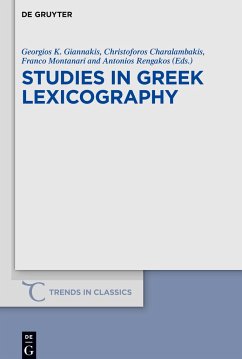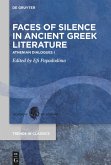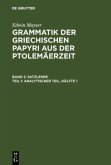This volume is the first of four devoted to Atticism, a form of linguistic purism that sought to preserve the rules of the 5th-century Attic dialect against the evolution of Postclassical Greek. The series elucidates the origins and development of Atticist thought, as well as its impact, transmission, and legacy from the Byzantine Middle Ages to the Renaissance.
Although Atticism flourished in the Imperial age, its roots are steeped in the previous centuries. This volume investigates the broad historical, cultural, and linguistic factors leading to the emergence of Attic as a prestige variety among the classical Greek dialects, the way Attic exclusivity was construed in Athenian literary sources, and how Hellenistic scholarship contributed to monumentalising Attic supremacy.
Atticism can be regarded as the first example of an intellectual movement seeking to promote an extinct variety to the status of linguistic standard, reflecting an ideological and nostalgic view of identity. This volume traces the roots of this linguistic phenomenon back to factors at work in the construction of Hellenicity in the archaic and classical periods.
Hinweis: Dieser Artikel kann nur an eine deutsche Lieferadresse ausgeliefert werden.
Although Atticism flourished in the Imperial age, its roots are steeped in the previous centuries. This volume investigates the broad historical, cultural, and linguistic factors leading to the emergence of Attic as a prestige variety among the classical Greek dialects, the way Attic exclusivity was construed in Athenian literary sources, and how Hellenistic scholarship contributed to monumentalising Attic supremacy.
Atticism can be regarded as the first example of an intellectual movement seeking to promote an extinct variety to the status of linguistic standard, reflecting an ideological and nostalgic view of identity. This volume traces the roots of this linguistic phenomenon back to factors at work in the construction of Hellenicity in the archaic and classical periods.
Hinweis: Dieser Artikel kann nur an eine deutsche Lieferadresse ausgeliefert werden.

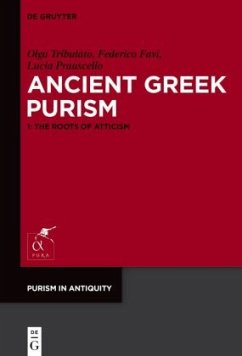
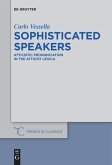
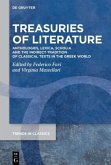
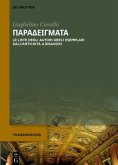
![[Indices] / Hesychius Alexandrinus: Hesychii Alexandrini Lexicon Volumen V [Indices] / Hesychius Alexandrinus: Hesychii Alexandrini Lexicon Volumen V](https://bilder.buecher.de/produkte/64/64126/64126009m.jpg)
